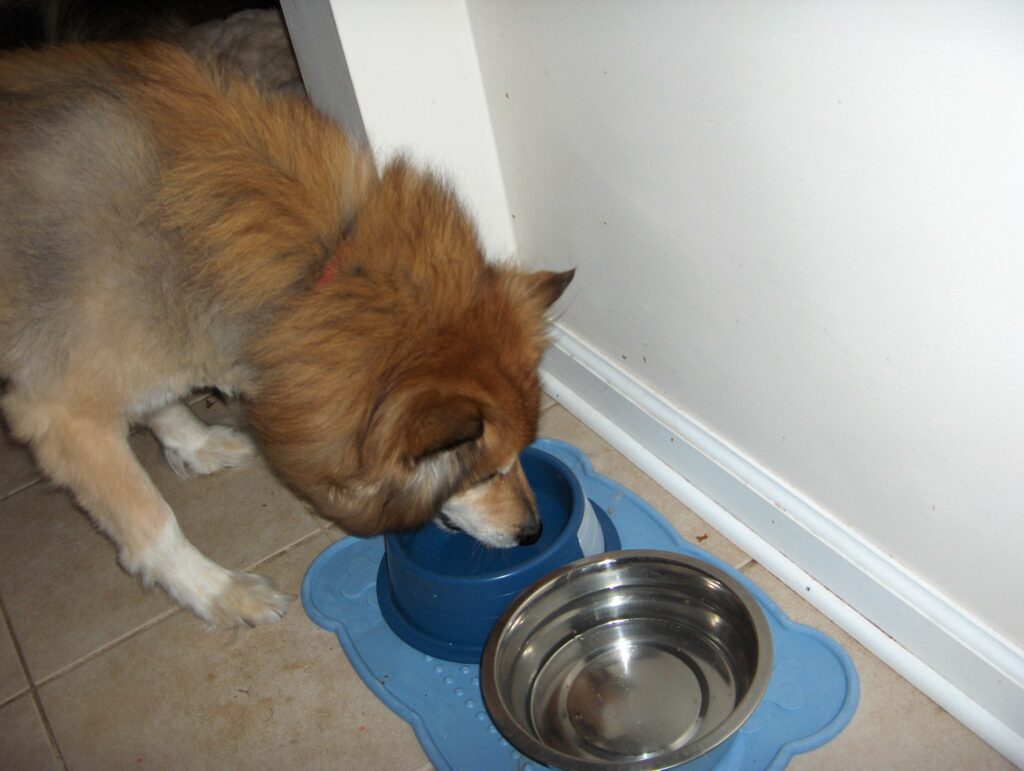Nursing dogs are an important part of a healthy family.
Not only do they provide companionship and love, but they can also help you feed your other pets or even yourself!
However, providing adequate milk production for nursing dogs requires special care and attention.
Here are 7 tips to ensure that your canine friend is producing enough milk.
7 Tips For Ensuring Adequate Milk Production in Nursing Dogs
1. Proper nutrition

Proper nutrition is essential for nursing dogs to ensure adequate milk production. Nursing dogs require an increased amount of energy, protein, calcium, and other key nutrients in order to support the growth and development of their puppies.
These additional nutritional needs help to promote a healthy milk supply for their litter. An inadequate diet can lead to reduced milk production or poor-quality milk that may not provide enough nutrition for the puppies.
It’s important to feed high-quality dog food that is specifically formulated for lactating mothers in order to meet all of their nutritional demands during this critical time.
2. Adequate hydration

Adequate hydration is essential for nursing dogs to ensure adequate milk production. When a dog is properly hydrated, the mammary glands are able to produce enough fluid and energy to adequately nourish her puppies.
Water plays an important role in keeping the body’s fluids circulating through the organs and tissues, transporting nutrients and oxygen. It also helps regulate temperature, eliminate waste products, lubricate joints, and cushion organs and tissues.
Inadequate hydration can lead to decreased milk production as well as other health problems such as dehydration, electrolyte imbalance, low blood pressure, increased risk of infection, organ damage, and heat stroke.
In addition, if the dog does not have enough water available for drinking or for producing milk it will be unable to produce enough milk to adequately nourish her puppies.
For pregnant and lactating dogs, it is important for them to have access to clean, fresh water at all times. It is also important for them to have access to plenty of cool and shaded areas in order to help regulate body temperature and to reduce the risk of heat stroke.
3. Frequent feeding
Frequent feeding is an important factor in ensuring adequate milk production in nursing dogs. When puppies nurse, they stimulate the mammary glands of their mother and instruct her body to produce more milk.
Without regular stimulation, the amount of milk produced can be limited or even stop altogether. Furthermore, a nursing dog’s diet should consist of high-quality calories that provide enough nutrients for proper milk production.
A complete and balanced diet will also help with milk production as it provides essential vitamins and minerals that are necessary for the health of both the mother and the puppies.
In addition to providing good nutrition, frequent feedings can also minimize digestive distress in nursing mothers due to a decrease in blood flow throughout their entire body during lactation.
7 Tips For Ensuring Adequate Milk Production in Nursing Dogs
4. Environmental stress reduction
Environmental stress reduction is an important factor in ensuring adequate milk production in nursing dogs. Stress can cause a decrease in the production of oxytocin, which is necessary for lactation and nursing.
Oxytocin helps to relax the muscle contractions that aid in milk letdown. If a dog is under too much stress and her body does not produce enough oxytocin, she may experience difficulties with lactating or may even stop producing milk altogether.
Additionally, environmental stress can negatively affect the composition of the mother’s milk by decreasing its nutritional quality. Poor nutrition will lead to low weight gain in puppies and poor health overall.
In order to reduce environmental stress it is important to provide your dog with a safe and comfortable environment during her pregnancy and after she gives birth.
This means providing her with a quiet space away from loud noises and other distractions, as well as adequate access to food, water, and exercise.
Additionally, it is important to monitor the mother’s health during her pregnancy and make sure that she receives proper nutrition in order to ensure healthy puppies.
5. Proper nursing technique
The proper nursing technique is important to ensure adequate milk production in nursing dogs.
Dogs that are not nursing correctly can experience a decrease in milk supply, which can lead to inadequate nutrition for the puppies and other health problems such as poor weight gain or dehydration.
To ensure adequate milk production, owners must ensure their dog is nursing correctly.
The key to the proper nursing technique is positioning. When puppies nurse, they should be properly situated so that their mouths are over the mammary glands and not on any fur or skin between them.
If the puppies are too far back from the glandular area, milk will not be produced efficiently and could cause discomfort for the mother as well. The owner must consistently monitor the puppy’s position during nursing.
If a puppy is not nursing correctly, there are steps that can be taken to ensure the puppy gets enough milk and nutrition.
The owner should check for physical difficulties the pup may have with latching on and removing any obstacles such as fur or skin that may be preventing it from successfully nursing.
If necessary, they can help stimulate milk production by gently massaging the mother’s mammary glands.
7 Tips For Ensuring Adequate Milk Production in Nursing Dogs
6. Milk production supplements
Milk production supplements are essential for nursing dogs to ensure adequate milk production. The supplements provide the necessary nutrition needed for optimal milk production and help keep the mother and puppies healthy.
Milk production supplements contain important vitamins and minerals, such as calcium, phosphorus, B-complex vitamins, vitamin E, biotin, and folic acid. These are all necessary for proper milk production in nursing mothers.
The supplement provides energy to the mother dog while she is nursing her pups. This is important because it helps ensure that she has enough energy to nurse her pups without depleting her own nutritional stores.
Additionally, when a mother dog’s litter size is larger than four puppies or if the puppies have a higher nutrient demand due to a health condition or their large size, milk production supplements can help ensure the mother and puppies get adequate nutrition.
In addition to providing energy for lactation and additional nutrients for mothers who are nursing larger litters, milk production supplements can also support the overall health of mother dogs.
They contain fatty acids that are important for skin and coat health and vitamins and minerals that can help ensure the mother is getting all she needs to stay healthy.
The best time to start giving a mother dog a milk production supplement is when puppies are five days old or younger, as this helps to ensure the optimal nutrition of both her and her pups.
Milk production supplements come in powder form, which can easily be mixed with water or wet food, as well as in liquid form.
7. Weaning
Weaning is an important and necessary process for nursing dogs in order to ensure adequate milk production for their pups.
Moreover, weaning helps the mother dog regulate her milk supply and encourages the puppies to begin eating solid foods, which are more nutritious than milk alone.
During weaning, the mother dog’s milk production begins to slow down as she adjusts to feeding only her puppies and not producing milk for them.
This gradual decrease in lactation helps prevent mastitis, a serious condition that can occur when too much milk builds up in a female dog’s mammary glands.
Weaning also reduces stress on the mother dog, allowing her body time to recover from the physical demands of pregnancy and nursing.
7 Tips For Ensuring Adequate Milk Production in Nursing Dogs
In Conclusion
In conclusion, ensuring adequate milk production in nursing dogs is a critical step when caring for a litter of puppies.
Proper nutrition before and during lactation, frequent monitoring of the mother’s health and condition, and access to clean water will help ensure that the puppies receive enough milk while their bodies are growing and developing.





Leave a Reply